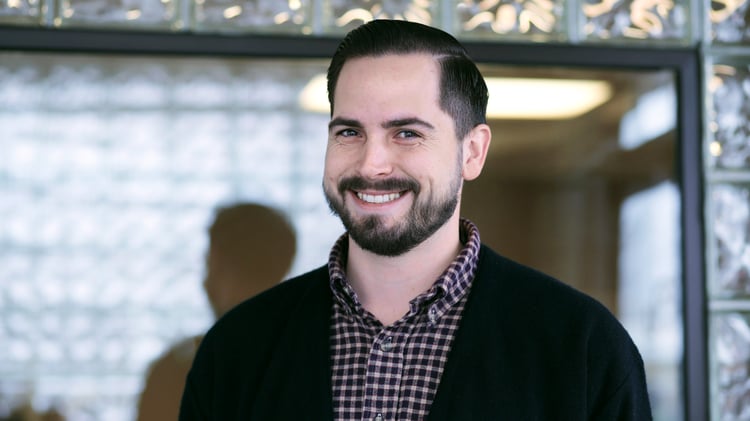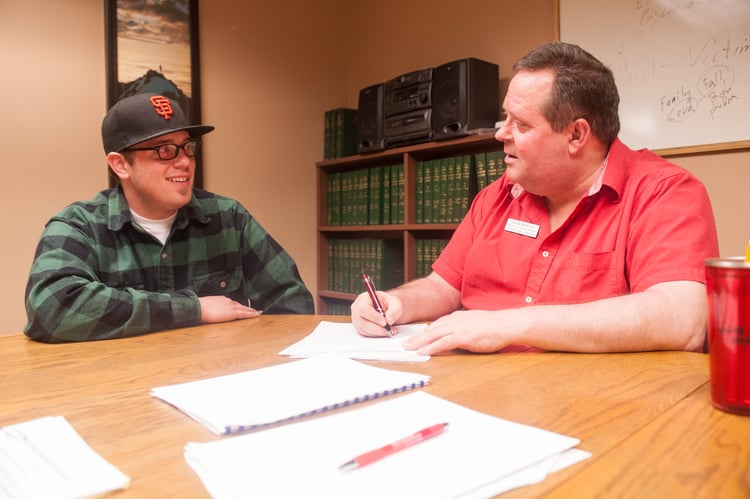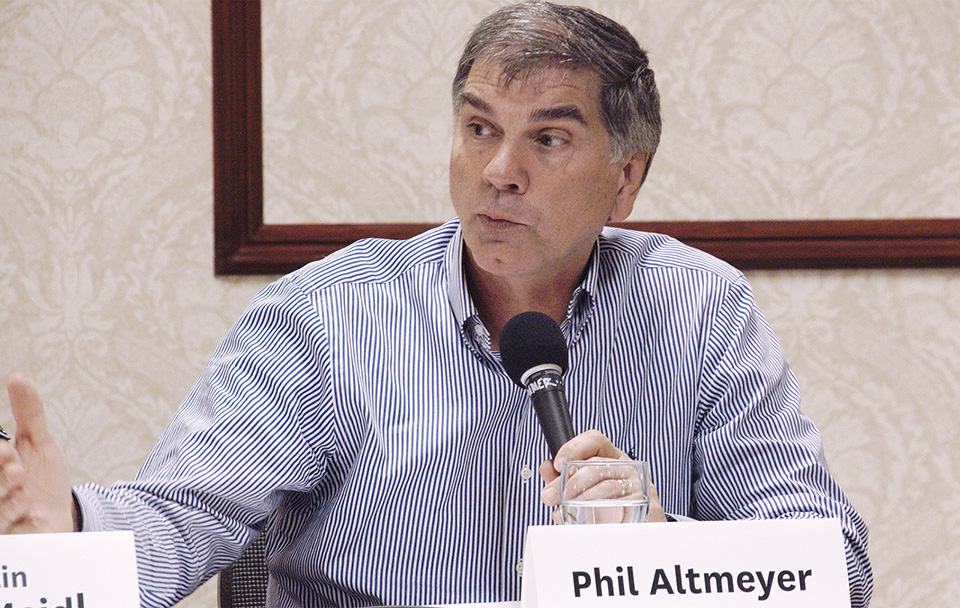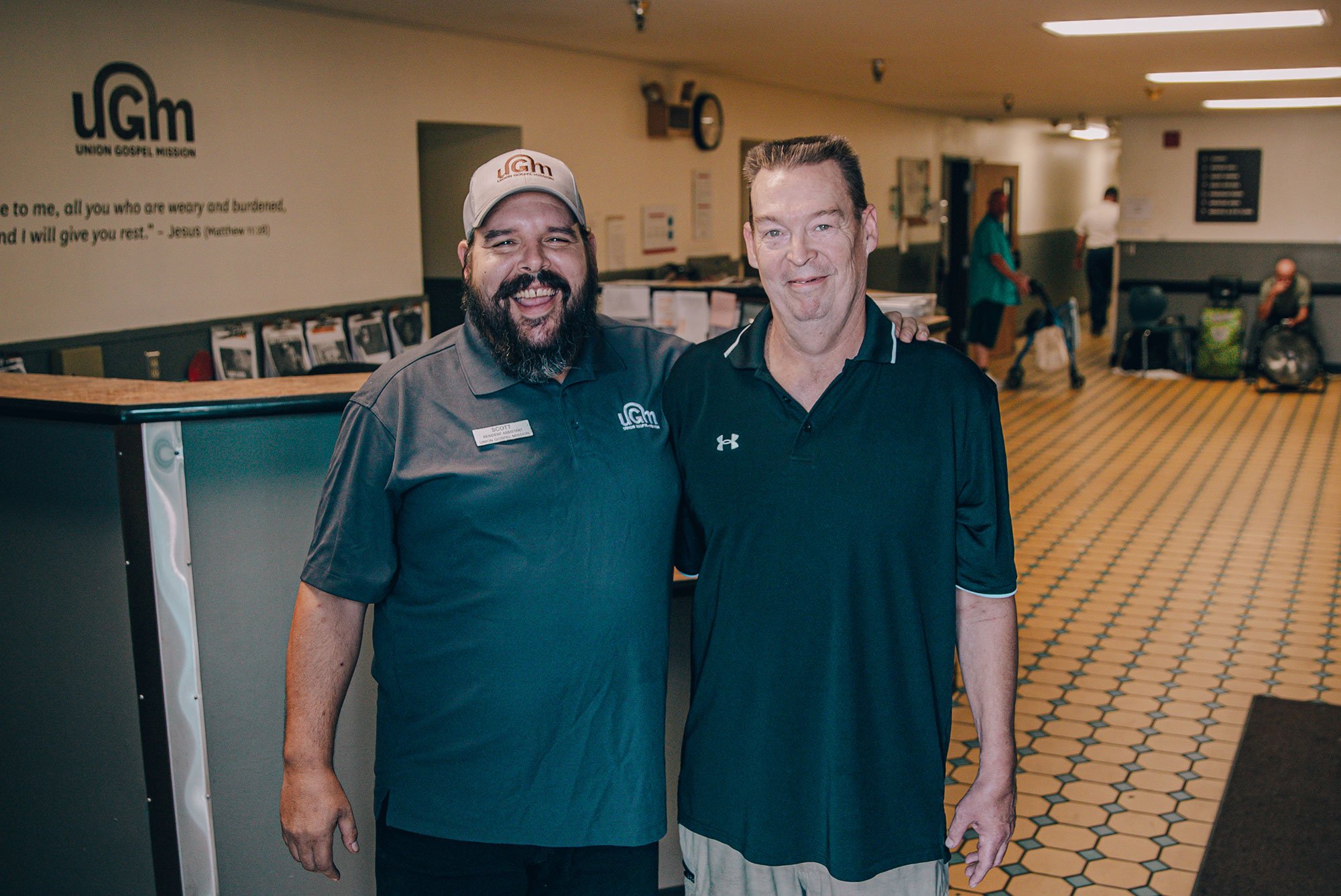2 min read
Gospel-Centered from the Start
“Let us hold unswervingly to the hope we profess, for He Who promised is faithful…Jesus Christ is the same yesterday, today, and forever.” (Hebrews...
By Gabe Shippam, Director of Men's Rescue
Years ago, I started a ministry in the worst neighborhood in San Diego. Daily, more crimes and arrests occurred in that neighborhood than anywhere else in the city. We were there intentionally to be a light in the darkness, love the poor and homeless, provide for their physical needs, and build relationships in order to proclaim the gospel of Jesus.

I had already been working in and around this neighborhood for years. I had well-established relationships with the homeless there. God used this time to impact lives, but within a few months of distributing raiment to the needy in this inner-city neighborhood, I found myself conflicted. I began wrestling with the ways churches, social services, and individuals were striving to alleviate poverty. I came to realize that you can’t help the poor simply by giving them the resources they appear to need. The people needed a different kind of help if they wanted to change. They needed more than one-way giving. One-way giving only treats the symptoms, rather than cures the disease.
We have all heard the saying, “Give a man a fish and you feed him for a day; teach a man to fish and you feed him for a lifetime.” This saying is never truer than in rescue mission work. Every day at the UGM Men’s Shelter in Spokane, we interact with hundreds of individuals who are dealing with a variety of debilitating problems. Most find themselves relying on charitable resources, but the resources designed to help seem to do nothing more than keep them trapped in a system of dependency. At UGM, our desire is to do more than sustain this cycle. We want to break the cycle of poverty. One way we are doing this is through the Employment Ready Program (ERP).

UGM has reworked our Men’s Shelter to include a potential answer for charitable dependency. ERP is a short-term, residential program designed to get men back into the workforce and prepare them for life as God-dependent and contributing members of society. Throughout our time together, we help our clients explore career paths, build resumes, develop interview skills, and earn current work experience on site. Since its inception, the ERP has been exceptionally successful. In just a few short years, we have seen over 45 men obtain work and move out of our shelter!
Robert Lupt0n, in his book Toxic Charity, writes, “Little affirms human dignity more than honest work. One of the surest ways to destroy self-worth is subsidizing the idleness of able-bodied people. Work is a gift, a calling, a human responsibility.”
Taking a look at Genesis it is obvious that God, our Creator, is the perfect example of a hard worker. He invites us to take on the responsibility and privilege of work, and as we do so, we benefit from the gift of work. We recognize this and seek to instill this attitude in those we help develop in ERP.
It is easy to see how men shine more brightly when they get a job. As we watch a man move from homelessness and despair to employment and self-sufficiency, we see him come alive. Shame is replaced by pride, despair is replaced by hope, and isolation is replaced by friendship.
Recently, I caught up with one of our ERP graduates at his work place. As I visited with him he expressed his gratitude for UGM. He told me how he gained spiritual maturity and biblical context from the weekly Bible study. He gained much needed life skills from our Boundaries class. He gained confidence and practical interview skills from our WorkNet class and Voc-Ed center.

As he shared what he is thankful for, he also shared about his hopes for the future. He plans to move into a better apartment, develop his skills as a professional, and eventually, open his own business.
The ability to plan and establish goals like this typically doesn’t happen while someone is homeless, living in survival mode, without hope of breaking out of the vicious cycle.
Most men that check into our shelter enter with doubt that they have what it takes. They all are searching for significance and acceptance. In ERP, what we try to do is adopt a principle found in Paul’s New Testament letter to Philemon. Paul wrote to a slave’s master regarding his runaway slave. The apostle declared that this slave, who was once seen as worthless, is now full of value. The principle is simple, yet profound: everyone, even those some might see as worthless, have God-given value and potential.
Through the ERP, men who once felt worthless receive back their dignity by choosing to look for, secure, and succeed in employment.
Want to get your business involved in helping the homeless get back to work? Click below to find out more.

2 min read
“Let us hold unswervingly to the hope we profess, for He Who promised is faithful…Jesus Christ is the same yesterday, today, and forever.” (Hebrews...

9 min read
To celebrate 75 years of serving the Inland Northwest, we are spending the year remembering our history and the faithfulness that built us and...

2 min read
In 2026, Union Gospel Mission Inland Northwest is approaching our 75th Anniversary! This is a milestone that invites gratitude and reflection, and...

In his book “When Helping Hurts,” Dr. Brian Fikkert explains the far-reaching consequences of defining poverty incorrectly. He likens it to a doctor...

“May the God of hope fill you with all joy and peace as you trust in him, so that you may overflow with hope by the power of the Holy Spirit.” —...

UGM is more than a shelter. Deep at the root of everything we do—from creating a warm welcome to helping people heal, thrive and get back to...